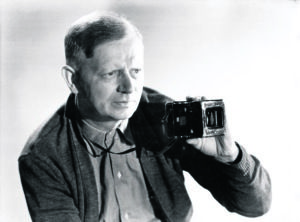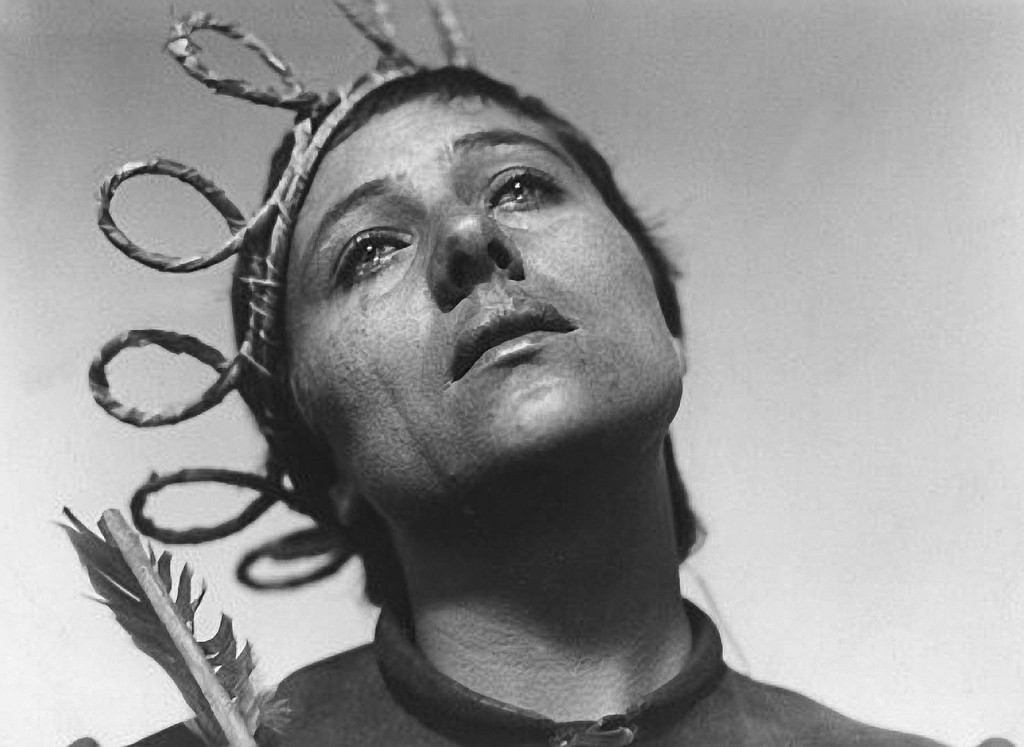Business & Education
A movie maverick who unsettled audiences with his realism
This article is more than 9 years old.
Many critics regard Carl Theodor Dreyer’s film about Joan of Arc as the most “essential” ever

Carl Theodor Dreyer, 1889-1968
When Toronto International Film Festival’s panel of curators last year set out to compile an ‘Essential 100’ collection of the best films ever made, it was a classic 1928 film by a Danish director that beat out the likes of ‘Citizen Kane’ and ‘The Godfather’ to top the list.
‘La Passion de Jeanne d’Arc’ (The Passion of Joan of Arc), a silent film produced in France and directed by Carl Theodor Dreyer, is praised for the unsettling way it placed the viewer inside Joan of Arc’s emotional state through the use of extreme close-ups. Dreyer’s confined subjects and his unique camera angles made for strange and unpleasant viewing – particularly in an age when audiences were more used to slapstick humour or soap opera dramas. But above anything, it is Dreyer’s firm individualism and unique viewpoint that places the silent film at the top of many critics’ lists.
The director was living in France when he made ‘La Passion de Jeanne d’Arc’, and he used actual records of the trial as inspiration for the film. He also worked Maria Falconetti over like a tyrant, forcing her to kneel on stone for hours but wipe all expressions of pain from her face – Falconetti suffered a mental collapse after completing the role.
Given up for adoption
His behaviour gave rise to later rumours about his intensity and difficulty to work with as a director, and there were other problems. The positive critical responses to his work did not come until much later. Audiences did not flock to see his films at the time, and even the then-critics failed to see anything inspiring or revelatory in his work. He had difficulty securing funding for most of his projects.
Dreyer was the illegitimate son of a Swedish housemaid, but was given up for adoption soon after his birth. After several foster homes, he was adopted by a religious family and given the same name as the head of the family, Carl Theodor Dreyer. His natural mother died shortly afterwards, in the process of trying to abort another pregnancy. Although Dreyer denied that his childhood had any impact on his films in later interviews and public appearances, he also disassociated himself from his adopted family directly after he finished school.
After a few standard office jobs, Dreyer got a job as a journalist, but it was actually his license to operate a hot-air balloon that led to his first contact with the at-the-time nascent film industry. Balloons were used to take aerial shots and this led to him getting a job at the then fledgling Nordisk Film Company. He also wrote titles and scripts, and this soon expanded to him being trained in the art of editing and shooting.
Unusual debut
His first film, ‘Præsidenten’ (The President), was released in 1918 and was already unusual for its use of natural faces, meaning real people instead of actors wearing prosthetics. Several more silent feature films followed in which he started to establish the trademarks he is famous for: the doomed and abused heroine with an unshakeable conviction in some unattainable goal, and secondly, a mysticism that has been demystified and become a kind of accepted reality. His film about Joan of Arc would tackle both of these themes, and his films with sound would go even deeper.
Few directors were able to make the transition from silent films to talkies with any success. But Dreyer paid little attention to whether his films were critical or commercial triumphs; he simply held on to the strong vision of what film could be. His range of continuing obsessions began to play out more thoroughly and under different circumstances in his films with sound.
Critical acclaim
The voices of his characters took on very specific roles in his 1955 film ‘Ordet’ (The Word), which chronicles the religious and spiritual struggles experienced by one farming family in small town Denmark before the industrial age.
The father and family patriarch loses his spiritual grounding when the smartest son returns from studying theology with the belief that he is literally Jesus Christ. Meanwhile, the eldest son has lost his faith and the youngest is in love with the daughter of a fundamentalist, who does not believe in the match. The high and unearthly drone of the mad son’s voice clashes with the steady, calm tones of the eldest son’s faithful wife, who is holding the family together.
The struggle between life and death, but even more, between science and blind faith, holds each member of the family firmly together. ‘Ordet’ was awarded a Golden Lion at the 1955 Venice Film Festival and became the only financial and critical success Dreyer had during his lifetime.
Undying legacy
Tone and pitch also play a key role in the coldest drama of love ever preserved on film: his last film, ‘Gertrud’ (1964). The plot follows an opera singer who is feeling trapped in her icy marriage to a high-level politician. She discusses her feelings with him in high, wavering pitches, not once looking him in the eye. The characters fuel the storyline by taking on other lovers, who are all cold and unemotional, but none are more than Gertrud herself, who is longing for a passion that is palpable beneath a forced evenness – a wasteland of never-ending propriety.
As a director, Dreyer felt no need for negotiation, or commercial concessions. The vision was in his mind already, and if he needed to use physical torture to get performances out of the actors or force emotional imbalance on an audience, then it was all worth it. During the filming of his 1943 drama about European witch hunts, ‘Vredens Dag’ (Day of Wrath), he sent everyone to lunch early, leaving his elderly female actress bound and only partially dressed on a cold stone table for an hour. When the crew returned to film the torture scene, the director was finally satisfied with the woman’s performance.
The legacy he leaves to the public and other filmmakers now is one of careful attention to atmosphere, detail and recreating reality with new emphasis. Dreyer created films that are essential viewing because of the space they leave for the viewers to involve themselves. In the slow shots and extreme close-ups, the audience is drawn into the drama, but also left to draw an idea or a possible conclusion from the story. Looking away from the tears on the face of Joan of Arc is not an option. The audience empathises with and suffers every moment, and that is exactly the way the director wanted it.











































